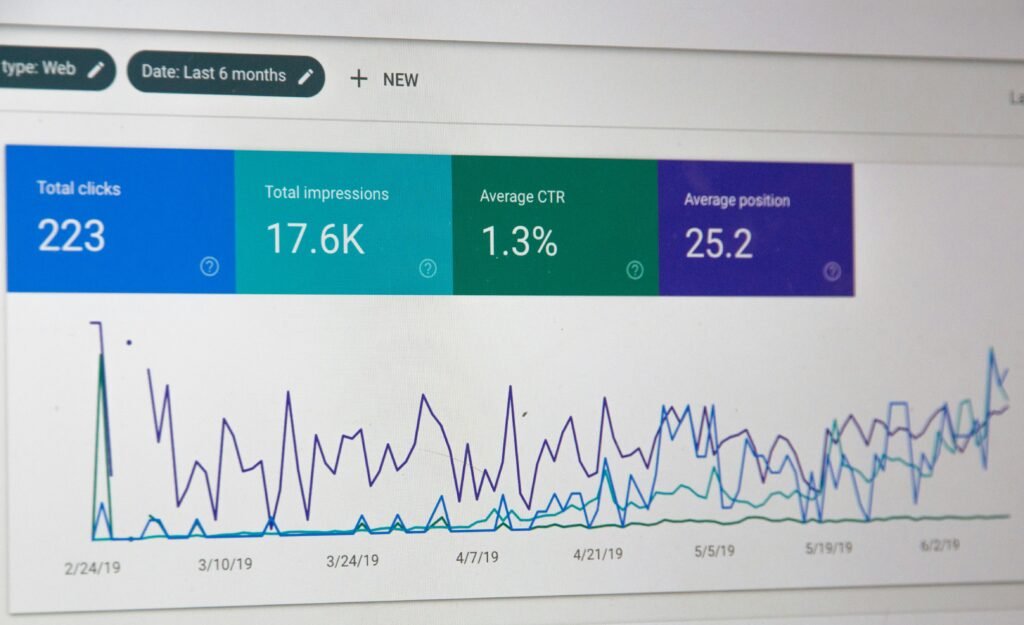
Introduction to Online Earning in 2025
The landscape of earning money online is set to undergo significant transformations by 2025, driven by cultural and technological advancements. As society becomes increasingly digital, the opportunities for individuals to generate income remotely are expanding exponentially. In this environment, adaptability and a keen awareness of emerging trends will be crucial for anyone looking to successfully navigate the online earning space. Understanding these trends will not only allow individuals to stay relevant but also equip them with the tools needed to thrive.
One of the most notable shifts is the rise of artificial intelligence (AI) and automation, which are expected to reshape many industries. By 2025, it is anticipated that AI will play a critical role in the way jobs are created and performed, creating new avenues for online earning. Freelancers and entrepreneurs can harness these technologies to enhance their productivity and efficiency. As the gig economy continues to expand, platforms facilitating remote work opportunities will evolve, offering diverse ways for individuals to monetize their skills and capabilities.
Furthermore, the blockchain technology and cryptocurrency markets are likely to grow significantly. These technologies not only promise secure and transparent transactions but also open up innovative investment and earning avenues. As digital currencies gain wider acceptance, understanding their mechanics will be essential for those wishing to benefit from this emerging landscape. Social media and influencer marketing are also poised to take on new dimensions, offering creative individuals the chance to leverage their online presence to generate income.
In summary, the online earning marketplace in 2025 will be defined by rapid technological advancements and cultural shifts. To fully capitalize on these opportunities, individuals must remain adaptable and informed about new trends, allowing them to effectively harness the potential of the digital economy.
Emerging Technologies Shaping Online Earnings
The landscape of online earning is continuously evolving, primarily driven by advancements in technology. As we look to 2025, several emerging technologies are poised to significantly influence how individuals generate income online. Among these, artificial intelligence (AI), blockchain technology, and virtual reality (VR) stand out due to their potential to revolutionize traditional business models and create new avenues for income generation.
Artificial intelligence, with its ability to analyze vast amounts of data and automate processes, is already transforming many sectors. From enhancing customer service through chatbots to enabling personalized marketing strategies, AI is streamlining operations for businesses and individuals alike. Online entrepreneurs can leverage AI tools to optimize various aspects of their operations, leading to improved efficiency and enhanced profitability. Furthermore, AI-driven content creation can assist bloggers and marketers in producing high-quality materials swiftly, thereby increasing their capacity to earn online.
Blockchain technology is another game changer, particularly concerning transparency and security in online transactions. By utilizing decentralized ledgers, individuals can engage in peer-to-peer transactions without the need for intermediaries, reducing costs and increasing trust. The rise of cryptocurrencies as a viable payment option also highlights the potential for blockchain to facilitate new business models, such as tokenized economies and decentralized finance (DeFi) platforms. These innovations can offer users new ways to monetize their skills and services while ensuring secure and verifiable transactions.
Lastly, virtual reality is redefining the online experience, creating immersive environments that enhance user interaction. VR platforms have begun to emerge, offering creators opportunities to showcase their work in innovative ways, whether through virtual events, interactive storytelling, or virtual real estate. As this technology continues to mature, it presents fresh possibilities for content creators and entrepreneurs to monetize their unique offerings in engaging, immersive formats.
In conclusion, the convergence of AI, blockchain, and virtual reality is shaping the future of online earnings. By embracing these emerging technologies, individuals can unlock new potential for generating income in the digital landscape.
The Rise of the Gig Economy
The gig economy has been a significant force in reshaping traditional employment landscapes, and its influence is expected to expand further by 2025. Characterized by short-term, flexible, and freelance jobs, the gig economy offers individuals an opportunity to access diverse income sources through platforms such as Uber, Airbnb, and various freelance marketplaces. As technological advancements continue to evolve, these platforms will become increasingly sophisticated, providing users with enhanced tools to maximize their earnings and create tailored work experiences that match their individual skills and interests.
In the coming years, we can anticipate that the gig economy will become more integrated into our daily lives. For example, the emergence of artificial intelligence and machine learning will improve the efficiency of these platforms. Workers can expect better matching algorithms that connect them with relevant gigs based on their experience and preferences. For instance, a graphic designer might find freelance projects that specifically align with their artistic style or specialization, thus increasing job satisfaction and productivity.
Moreover, the gig economy’s evolution will not be limited to technology changes. Shifts in societal attitudes towards work will play a crucial role. As millennials and Gen Z continue to enter the workforce, there will likely be an increasing demand for flexible work options that promote better work-life balance. This cultural shift will encourage businesses to adapt their models, further legitimizing gig work as a viable alternative to traditional employment.
Individuals looking to capitalize on this growing trend should consider their unique skills and interests when exploring gig opportunities. By leveraging available online platforms, they can effectively create personal brands and establish reliable income streams. As the gig economy continues to mature, the possibilities for earning money online will broaden, providing exciting possibilities to those willing to embrace them.
E-Commerce Innovations and Trends
The e-commerce landscape is continually evolving, driven by technological advancements and shifts in consumer behavior. As we approach 2025, two notable trends are emerging that present exciting opportunities for entrepreneurs: social commerce and subscription models. These innovations not only enhance consumer engagement but also create new avenues for revenue generation in a digitally dominated marketplace.
Social commerce refers to the integration of social media platforms with e-commerce functionalities. This trend allows businesses to leverage social networks as a direct sales channel, enabling them to reach potential customers where they already spend considerable time. For instance, platforms such as Instagram and Facebook have introduced features that allow users to shop directly from posts and stories. This seamless experience can increase conversion rates, as consumers are more likely to make purchases when they can act immediately within their social interactions. Entrepreneurs can capitalize on this trend by creating visually appealing content that resonates with their target audience and encourages sharing and engagement.
In addition to social commerce, subscription models are gaining popularity as they provide consumers with a convenient and personalized shopping experience. This model often involves offering products or services on a recurring basis, which can lead to predictable revenue streams for businesses. Subscription boxes, for example, have gained traction, allowing companies to curate a selection of items tailored to the preferences of their customers. To effectively utilize this model, entrepreneurs should focus on personalization through data analytics, enabling them to adapt offerings based on consumer behavior and feedback.
As e-commerce innovations like social commerce and subscription services continue to evolve, it is essential for entrepreneurs to remain agile and responsive to these trends. By embracing these technologies, businesses can not only enhance customer satisfaction but also secure a competitive edge in an ever-changing digital marketplace.
Passive Income Opportunities through Digital Assets
As we look toward the evolving landscape of 2025, passive income opportunities through digital assets are becoming increasingly relevant for individuals seeking financial stability and independence. Digital assets encompass a variety of online platforms and content formats that can generate revenue with minimal ongoing effort once established. Blogs, YouTube channels, and online courses are noteworthy examples of digital assets that can serve as lucrative income sources.
Content creation lies at the heart of these opportunities. By producing high-quality, engaging content, individuals can attract a dedicated audience. A blog, for instance, allows writers to share expertise on specific topics, which not only positions them as thought leaders but also creates opportunities for monetization through affiliate marketing, sponsored posts, and advertisements. In this manner, a blog can evolve from a hobby into a sustainable source of income, benefiting significantly from consistent traffic and diverse monetization strategies.
YouTube channels offer an alternative avenue for passive income, leveraging the platform’s extensive reach. Creators can monetize their content through ad revenue, sponsored content, and merchandise sales once they achieve sufficient viewership. The key lies in producing engaging videos that resonate with audiences, ensuring that viewers return for more. As the video content continues to dominate online consumption, those who capitalize on this trend can enjoy stable income streams.
Online courses represent another profitable digital asset. With the growing demand for skill-building in a competitive job market, individuals can develop courses that impart valuable knowledge or skills. Once crafted, these courses can be sold repeatedly, providing a steady flow of income with minimal intervention. This approach not only reflects the demand for accessible education but also highlights the potential for financial growth through strategic content monetization.
In conclusion, the year 2025 presents an array of passive income opportunities through digital assets, with blogs, YouTube channels, and online courses at the forefront. By leveraging technology and focusing on quality content creation, individuals can cultivate sustainable income sources that thrive in the digital age.
The rise of cryptocurrencies and financial technologies is poised to revolutionize the landscape of earning money online in 2025. With the proliferation of digital currencies such as Bitcoin, Ethereum, and various altcoins, individuals have unprecedented opportunities to engage in trading, investing, and participating in decentralized finance (DeFi). These opportunities are transforming traditional notions of wealth generation and income production.
Cryptocurrency trading has become a significantly accessible avenue for individuals looking to profit from market fluctuations. Platforms facilitating trading offer user-friendly interfaces that cater to both novice and experienced traders. Additionally, the introduction of advanced algorithms and artificial intelligence in trading tools has enabled users to make more informed decisions, enhancing their strategies and potentially increasing their earnings. In 2025, it is anticipated that innovations in trading technology will further streamline this process, providing even greater accessibility and efficiency.
Investment options in the cryptocurrency realm are also expanding. Individuals can consider long-term investments in promising digital assets or participate in Initial Coin Offerings (ICOs) that present opportunities to invest in emerging technologies. Moreover, methodologies such as dollar-cost averaging can be adopted to mitigate risk while fostering growth over time. With regulatory frameworks evolving, many believe that investing in cryptocurrencies will become as mainstream as traditional stock market investing.
Additionally, decentralized finance (DeFi) is emerging as a pivotal sector that allows individuals to earn money online through lending, borrowing, or yield farming. By utilizing blockchain technology, DeFi eliminates intermediaries, thus offering enhanced financial services directly between users. Participants can earn interest on their crypto holdings, providing a steady income stream that has the potential to outperform traditional savings accounts or investment vehicles.
In summary, as cryptocurrencies and financial technologies continue to evolve, they will undoubtedly present new prospects for earning money online. By engaging with these innovations, individuals can explore diverse methods of trading, investing, and participating in DeFi, positioning themselves to generate wealth in the changing economic landscape of 2025.
Building Personal Brands Online
In the increasingly digital world of 2025, building a personal brand has become essential for individuals looking to monetize their skills, passions, or expertise. A personal brand is essentially the unique combination of skills, experience, and personality that an individual presents to the world. With the advancement of technology and social media platforms, now more than ever, cultivating an online presence is crucial for attracting and engaging an audience.
The first step in developing a strong personal brand is to identify your niche and unique value proposition. Understanding what sets you apart and being able to effectively communicate that to your audience is vital. Whether it is through compelling storytelling, sharing valuable insights, or showcasing expertise in a specific area, clarity in messaging can greatly impact audience perception. Utilizing platforms such as LinkedIn, Instagram, or TikTok can help in reaching a larger audience while providing opportunities for content creation tailored to your brand.
Consistent engagement with your audience is another key component of cultivating a personal brand. Regularly sharing fresh and relevant content can help in building trust and loyalty among followers. Emphasizing authenticity and transparency can establish deeper connections with your audience, enhancing their likelihood of supporting your endeavors. As your following grows, information from followers can be gathered to adapt your approach based on their feedback, which is incredibly valuable.
Monetizing a personal brand in 2025 can be achieved through various channels such as sponsorships, affiliate marketing, and the sale of merchandise. Brands often seek partnerships with influencers who possess a strong personal brand, making it lucrative for content creators to collaborate. Furthermore, affiliate marketing is an excellent way to earn passive income by promoting products aligned with your brand. In summary, building an effective personal brand online not only fosters credibility but also opens multiple avenues for financial success in the year 2025.
Safety and Legality of Online Earnings
When engaging in online earnings, individuals must navigate a landscape filled with legal and safety considerations. First and foremost, it is essential to protect personal data. This involves utilizing strong passwords, opting for two-step verification, and frequently monitoring accounts for unauthorized access. It is imperative to be cautious when sharing personal information with potential clients or platforms, as cyber threats, such as phishing scams, are prevalent. Using reputable platforms that implement robust security measures can significantly minimize these risks.
Furthermore, understanding the tax implications associated with online earnings is crucial for compliance. Depending on the jurisdiction, individuals may be required to report their income from various online endeavors, including freelance work, online sales, and affiliate marketing. Therefore, it is advisable to maintain accurate records of all earnings and expenses to facilitate proper tax reporting. Consulting with a tax professional can provide valuable guidance tailored to specific financial situations and ensure that individuals are fulfilling their tax obligations.
Compliance with regulations is another vital aspect of online earning. Different countries may have varying laws governing online business activities. For instance, e-commerce operations may need to adhere to consumer protection laws and regulations regarding digital transactions. It is vital for individuals to familiarize themselves with local laws to avoid potential legal issues that could arise from non-compliance. Noncompliance not only jeopardizes the legitimacy of online earnings but can also lead to severe penalties.
In summary, the safety and legality of earning money online necessitates a proactive approach. By implementing effective data protection measures, understanding tax responsibilities, and adhering to applicable regulations, individuals can create a trustworthy and legal foundation for their online earning ventures. This careful consideration enhances not only personal safety but also ensures sustained success in the online marketplace.
Conclusion: Staying Ahead in the Online Earning Game
As we reflect on the various avenues explored for earning money online in 2025, it becomes evident that adapting to the continuous technological advancements is paramount. The digital landscape is evolving rapidly, and staying ahead in the online earning game requires individuals to embrace change and enhance their skill sets regularly. Among the key points discussed, the importance of leveraging technology trends, such as artificial intelligence, blockchain, and remote collaboration tools, stands out. These innovations are reshaping the way we work and earn, presenting new opportunities for those who are willing to learn and adapt.
Moreover, engaging in lifelong learning plays a critical role in maintaining relevance in this dynamic environment. Online courses, webinars, and communities focused on various aspects of digital entrepreneurship can empower individuals to refine their skills, gain new insights, and network with like-minded professionals. By fostering a mindset geared toward continuous improvement, individuals increase their potential to succeed in a competitive online marketplace.
Staying informed about emerging trends and technologies will enable aspiring online earners to anticipate shifts in demand and position themselves for success. The ability to pivot in response to market changes will be essential as new platforms and opportunities arise. It is imperative to remain curious and receptive to innovations that can enhance productivity and efficiency in online work.
In conclusion, the future of online earnings is promising for those who demonstrate adaptability and a commitment to ongoing education. By remaining agile in the face of technology trends and cultivating a proactive approach to learning, individuals can carve their own paths to success in the digital economy. Emphasizing these principles will undoubtedly ensure a rewarding journey in the ever-changing world of online earning.



